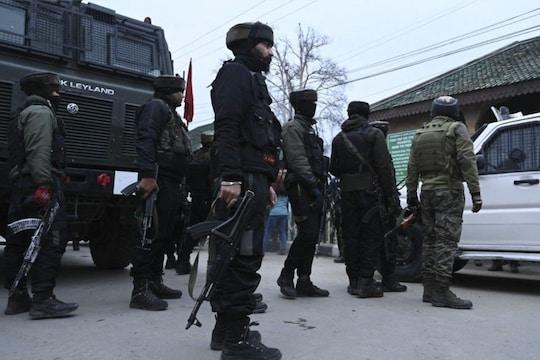SRINAGAR: Amid outrage over the opening of wine shop in Srinagar last week, terrorists attack on a wine shop in Baramulla town of northern Kashmir left one dead and others injured.
Officials said that the terrorists lobbed grenade at the newly opened wine shop at Dewan Bagh in Baramulla town which left four persons – all of them employees – injured. The injured were immediately shifted to a hospital where one of them succumbed to death.
The deceased person was identified as Ranjit Singh of Rajouri. The injured persons were identified as Govind Singh of Rajouri and Goverdan Singh and Ravi Kumar of Kathua.
“Terrorists lobbed hand grenade inside a newly opened wine shop in Baramulla. O4 employees got injured. One among them succumbed to his injuries. All are from Jammu division. Area cordoned and search started to nab culprits. @JmuKmrPolice @BaramullaPolice,” Kashmir Zone Police tweeted on Tuesday evening.
A massive cordon and search operation in the area was underway when this report was being filed.
Recently BJP leader Aijaz Hussain has met Lt Governor Manoj Sinha and requested him to order closure of wine shops at Srinagar outskirts of Pantha Chowk locality.
Some political leaders have termed the opening of the wine shop as “mischievous” and an act that will hurt the sentiments of the people, majority of whom are Muslims.
Arguing for shifting of the wine shop to a tourist destination, the BJP leader said that there is a school and a mosque near the shop that can hurt the sentiments of the people living in the vicinity.
In February, J&K administration said that 51 new wine shops will be opened in the region including six in Kashmir valley after three decades due to the threats from terrorist groups in the early 1990s.
Back then terrorist outfits had launched a “crusade” against liquor in the valley. They had issued a ban on its consumption which led to closure of liquor shops in the valley. A few, however, continued to remain operational in what are known as “safe-zones” around tourist places.

